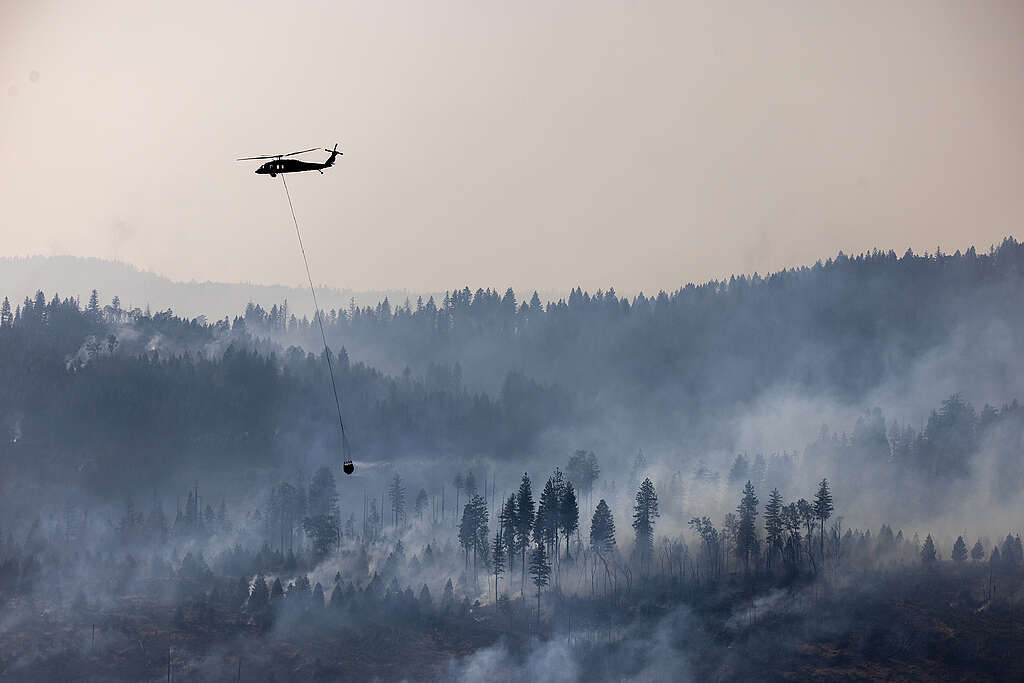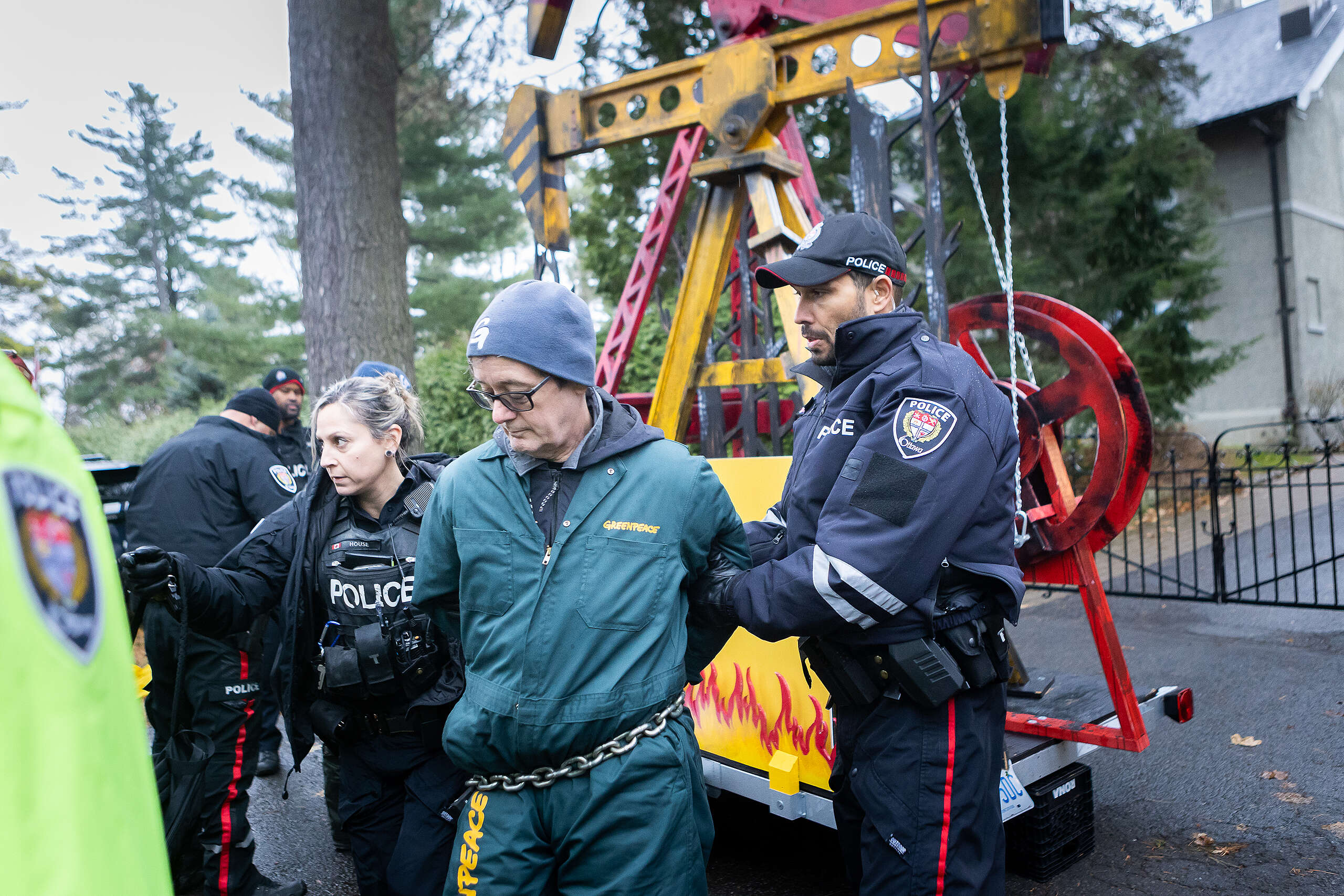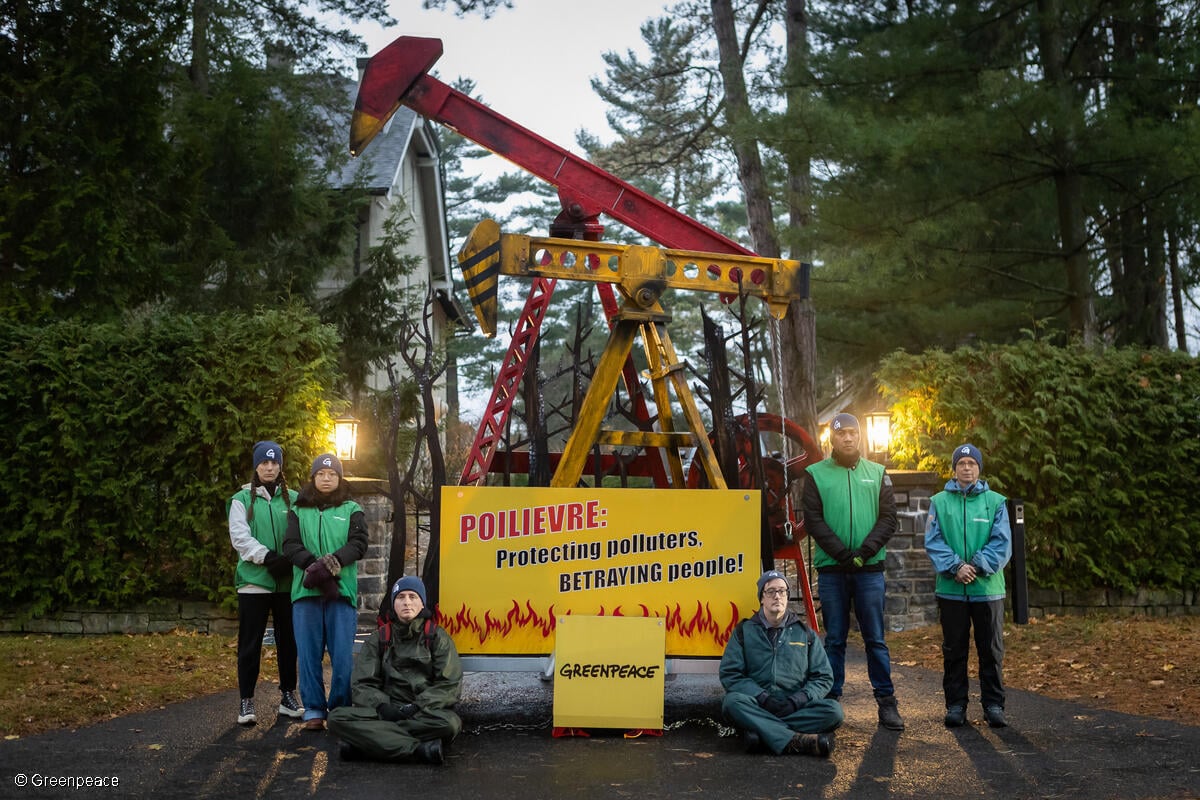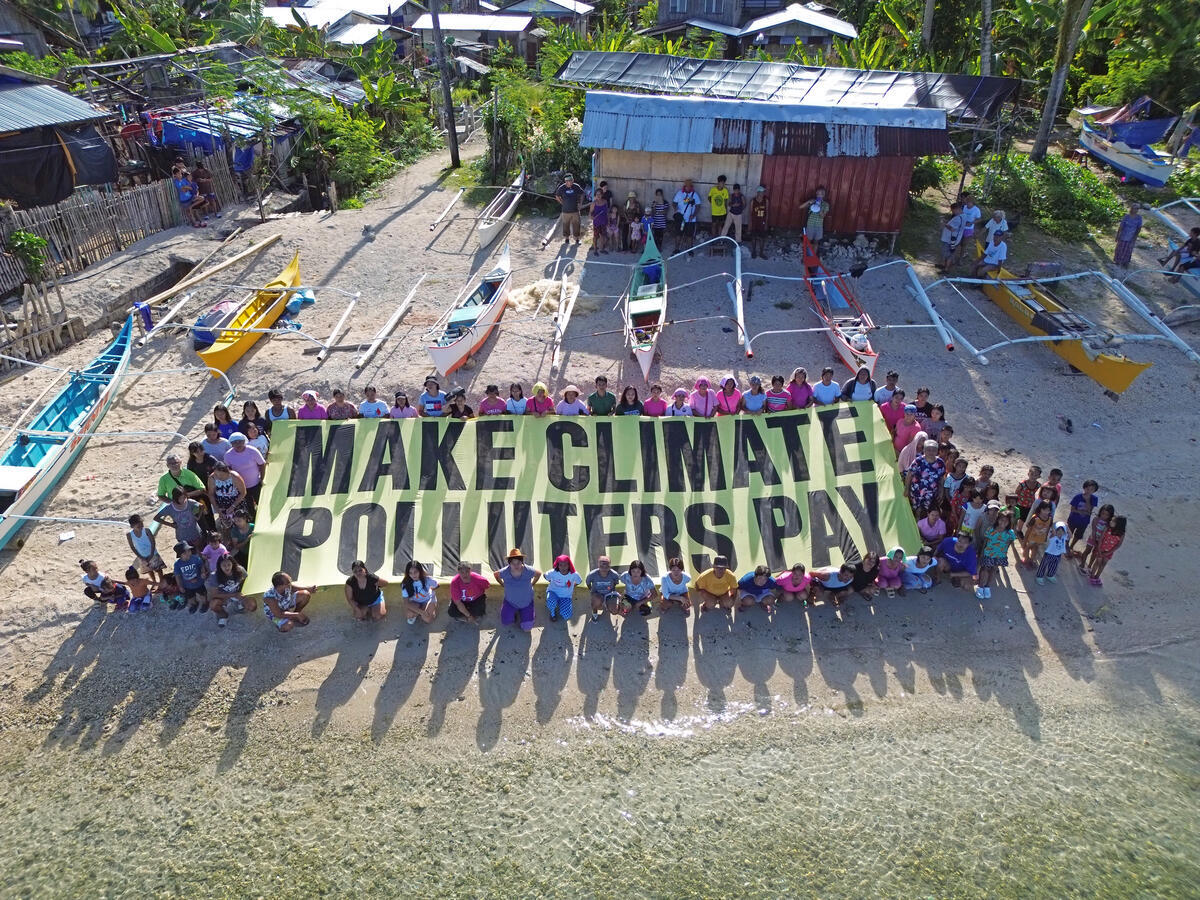
As summer draws to a close, let’s take a moment to reflect on recent climate news and how some governments are looking to hold polluters accountable for the climate harms they are responsible for. Pressure is mounting on oil and gas companies as they are increasingly in the crosshairs of governments.
2024: The planet is overheating
Following the record-breaking year of 2023—which was not only the hottest on record but also set new highs for ocean temperatures, sea level rise, Antarctic sea ice loss, and glacier retreat—2024 has offered no respite. Wildfires ravaged Western Canada, destroying much of the iconic town of Jasper; record floods inundated Quebec; and deadly heat waves gripped the nation. The global rise in extreme weather events has made its mark on our country (see the end of this blog for a detailed, though not exhaustive, list of extreme weather events in Canada this summer).
Governments are throwing down the gauntlet against oil companies
Fortunately, some jurisdictions around the world are stepping up and have begun suing polluters, including oil and gas companies as a means of holding them accountable for their pollution and making them pay for the costs of climate impacts that bear their signature. Recently, Vermont became the first state to pass a law requiring Big Oil to cover a portion of the damages from climate disasters, such as catastrophic summer floods and other devastating extreme weather events. States like Maryland, Massachusetts, and New York are also considering similar measures, which is a huge win for the climate! Additionally, an increasing number of U.S. cities and states, including Chicago, New York, and California, are suing fossil fuel companies for allegedly misleading the public about the climate crisis. Today, one in four Americans lives in a city or state that is pursuing legal action against these companies for deceiving the public.
In the United States, over 10,000 survivors of climate disasters are now calling for a federal investigation into the “climate crimes” of major oil companies. Recently, Puerto Rico filed a lawsuit seeking one billion dollars in damages from these companies, arguing that the industry was aware of the dangers of its products, yet the island is now bearing the brunt of the consequences. In a related case, Chevron has agreed to pay $550 million to the Richmond City Council as part of a settlement following the city’s proposal of a new tax on the oil company’s refinery. Richmond Mayor Eduardo Martinez hailed the settlement as a historic moment but stressed that the fight for Richmond’s environment is far from over.
“The community of Richmond has created a movement that will echo across the nation,” Martinez said. “What’s happened here has demonstrated to the community, to the nation, to the world, that when we as people pull together, we can create change. And that by standing up for environmental justice just as we have, other communities too can require that their polluters do the right thing, either by measure or by negotiation.”
When will Canada establish a Climate Recovery Fund?
As the scrutiny on oil and gas companies intensifies, it’s crucial that Canada establishes a Climate Recovery Fund to address the damages inflicted by the climate crisis.
What we need is a Climate Recovery Fund to help communities and local governments prepare, respond and adapt to extreme weather.
The fund would be used to:
- Repair the direct and indirect damages caused by climate change impacts in Canada and abroad;
- Cover the costs of adaptation to extreme weather;
- Build resilience in communities on the frontlines of the climate crisis.
Together, let’s change the world, hold polluters accountable, and strengthen our communities to be more resilient and secure.
We can’t afford any more ‘wake-up calls’, the climate crisis is here and now. Tell Finance Minister Freeland and Environment and Climate Change Minister Guilbeault to create a Climate Recovery Fund for fossil fuel companies to pay into.
*Here are some of the recent extreme weather events in Canada, brought to us by Exxon, BP, Shell, Chevron, and others:
- Torrential rains fell in Toronto and Quebec, with record-breaking precipitation levels: 75-220 mm of rain in Quebec and 50-130 mm in Ontario this past August. In the Montreal area, it was “probably the worst rainfall event we’ve ever experienced”;
- Hurricane Debby—the event that brought us these torrential rains—was intensified by 42% due to climate change;
- At times, more than 400 wildfires were also burning in British Columbia;
- The wildfire that destroyed a third of the popular tourist town of Jasper was the largest recorded in Jasper National Park in the past 100 years;
- Significant heat waves struck Canada, with human influence on the climate making these events “at least two to ten times more likely” in the West.
In recent months, climate disasters have unfolded and intensified not only in Canada but around the world. To learn more, visit The Guardian’s Extreme Weather page.




Discussion
Maybe in addition to a Minister of the Environment and Climate Change, we also need a Minister mandated to work with the Department of Justice to deal with the Climate Emergency and each emergency event. The mandate could include identification and prosecution of those responsible for each event, assessment of compensation for damages and full restoration costs against the perpetrators, and punitive damages up to and including the closure of the enterprise. All to be included within specific policy objectives to phase out fossil fuels by 2035 and to remove all subsidization by 2026.